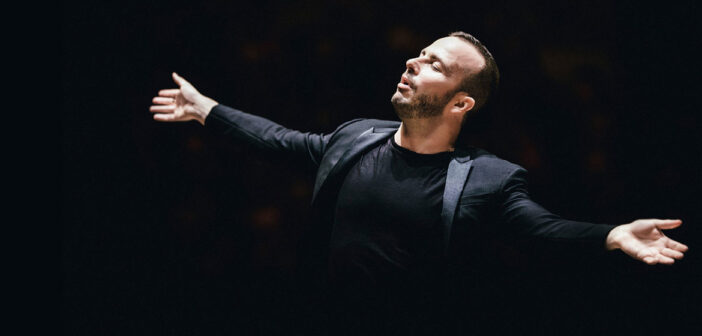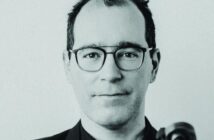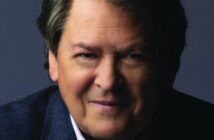PHILADELPHIA, PA — April 17, 2024 — The Curtis Institute of Music is thrilled to announce that it will expand the scope of the school’s conducting program, creating a training program designed to provide the most promising young conductors with one-of-a-kind conducting mentorship in opera and symphonic repertoire. As part of this appointment, celebrated conductor and current Curtis faculty member Yannick Nézet-Séguin will become the school’s Head of Conducting. Renowned conducting pedagogue James Ross (’89), who has helped guide Curtis students in the art of orchestral playing and conducting for the last two school years, will join the faculty as Director of Orchestral Studies, starting in the 2024–25 school year.
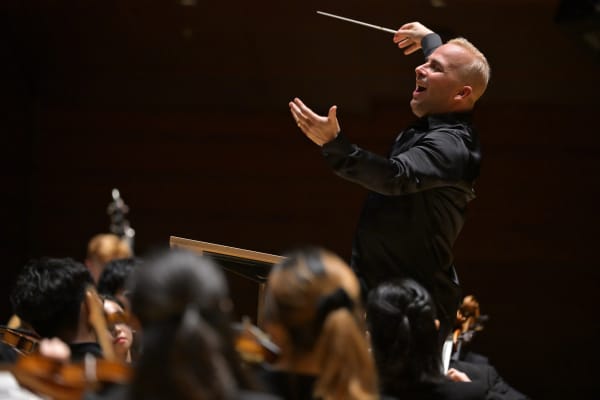
Yannick Nézet-Séguin and the Curtis Symphony Orchestra, Photo by David DeBalko
Mr. Nézet-Séguin will oversee the full range of the school’s newly expanded conducting program and work individually with the conducting fellows in operatic and symphonic repertoire. Curtis’s enhanced conducting program will include a thoughtful emphasis on the art of operatic conducting, as well as orchestral—a rarity among conservatory conducting programs—and is patterned on Mr. Nézet-Séguin’s own singular career as music and artistic director of The Philadelphia Orchestra and music director of the Metropolitan Opera. Curtis’s program aspires to develop conductors with a similar dexterity in both areas, and provide them with the skills, experience, and confidence to build rich and varied careers.
In addition to receiving coaching specifically geared to opera conducting from Mr. Nézet-Séguin, Curtis’s conducting fellows will gain crucial experience in working with the school’s acclaimed voice and opera department under the guidance of Miloš Repický, the Hirsig Family Chair in Vocal Studies and principal opera coach.

Benoit Gauthier, Rita E. Hauser Conducting Fellow, Photo by Margo Reed
“The expansion of Curtis’s conducting program is exciting for the future of leadership in our field,” says Mr. Nézet-Séguin. “The idea that Curtis will help create conductors who are equally at home in the worlds of both operatic and orchestral conducting—as I am—is unique in this country. These two worlds, so different in format, are woven together by the common acts of singing, shaping, and reacting,” he continues.
Curtis also will increase the number of conducting fellows from two to three, and lengthen the duration of the program from two to three years. All of these changes will be in place at the start of the 2024–25 academic year—Curtis’s recently-announced centennial, when the school celebrates 100 years of training the most exceptional musicians.
“Curtis is continually looking for ways to provide our students with the skills and experience to be at the forefront of classical music for years to come.” Says Roberto Díaz, president and CEO of Curtis. “By reimagining what conducting training looks like, we hope to inspire and empower our artists to shape not only their careers, but our art form,” he continues.

James Ross, Photo by P.J. Barbour
“Curtis has been a vital influence in my life since 1987 when I first entered the conducting program fresh from an active career as a horn player. It has been a lifelong source of friendships, colleagues, decent upbeats, and essential thinking behind good music-making,” says Mr. Ross. “What a joy for me now to return to this special world at Rittenhouse Square and to be asked to shape a next generation of inventive musicians in tandem with Yannick Nézet-Séguin as we explore this art form we love, what it means to our world today and tomorrow, and how we can make music truly come alive for everyone,” he continues.
Mr. Ross is well known for his expertise in orchestral training: he is the founding orchestra director of the National Youth Orchestra of the USA, where he oversees all artistic and educational activities during the orchestra’s annual summer residency and served as professor at the University of Maryland from 2001 to 2017. For the last two academic years, Mr. Ross has been helping the Curtis orchestra establish strong roots together and encouraging their artistry to grow and flourish. For three weeks this past September, Mr. Ross worked with Curtis’s students developing trust in their own ability to learn music quickly and meaningfully—skills they will rely on their entire careers. In ample demand as a conductor in his own right, Mr. Ross will maintain his position as music director of the Alexandria Symphony Orchestra.
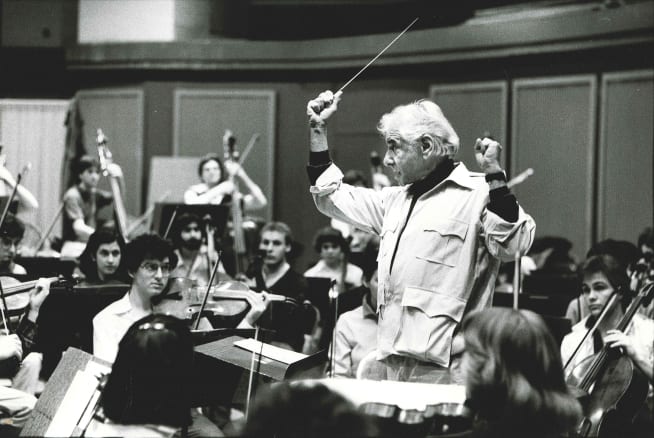
Leonard Bernstein conducting the Curtis Symphony Orchestra, Photo by Neil Benson
For the last century, Curtis’s conducting graduates—which include Teddy Abrams (’08), Leonard Bernstein (’41), Alan Gilbert (’92), Miguel Harth-Bedoya (’91), Sarah Hicks (’99), Sarah Ioannides (’98), Paavo Järvi (’88), Vinay Parameswaran (’13), Robert Spano (’85), Michael Stern (’86), Kensho Watanabe (’13), and Barbara Yahr (’86)—have changed the classical music landscape. With this expanded conducting program, Curtis hopes to empower its graduates to further shape the direction of the orchestral and opera fields.
Curtis Institute of Music is grateful to Rita and the late Gustave Hauser, whose visionary generosity first established the Rita E. and Gustave M. Hauser Chair in Conducting Studies, which supports appearances by Curtis Symphony Orchestra guest conductors each year. Rita Hauser’s commitment to the future of conducting then established the Rita E. Hauser Conducting Fellowships in 2013, held by Curtis’s conducting fellows. An investment from Mrs. Hauser in 2024 is underwriting the Rita E. Hauser Conducting Fellowship program expansion, which begins in the 2024–25 academic year.
Yannick Nézet-Séguin is music and artistic director of The Philadelphia Orchestra, music director of Montreal’s Orchestre Métropolitain, and in September 2018, began his tenure as music director of the Metropolitan Opera. Widely recognized for his musicianship, dedication, and charisma, Mr. Nézet-Séguin has established himself as a musical leader of the highest caliber and one of the most exciting talents of his generation. His highly collaborative style, deeply rooted musical curiosity, boundless enthusiasm, and fresh approach to programming have been heralded by audiences and critics alike.
Mr. Nézet-Séguin has appeared with most of the world’s leading orchestras. He enjoys close collaborations with the Berlin Philharmonic, Vienna Philharmonic, Bavarian Radio Symphony Orchestra, and Chamber Orchestra of Europe. He is honorary conductor of the Rotterdam Philharmonic after serving as its music director from 2008 to 2018; and was principal guest conductor of the London Philharmonic from 2008 to 2014. He has appeared repeatedly at the BBC Proms and many European and North American festivals, among them Edinburgh, Grafenegg, Lanaudière, Lucerne, Mostly Mozart, Salzburg, Saratoga, and Vail.
He has conducted annually at the Metropolitan Opera since 2009, and has led productions at Teatro alla Scala in Milan; the Royal Opera House, Covent Garden in London; Netherlands Opera; and the Vienna State Opera. He records for Deutsche Grammophon.
A native of Montreal, Mr. Nézet-Séguin studied piano, conducting, composition, and chamber music at the Conservatoire de music du Québec. He continued his studies with renowned conductor Carlo Maria Giulini, and also studied choral conducting with Joseph Flummerfelt at Westminster Choir College. His honors include Musical America’s Artist of the Year (2016), the Royal Philharmonic Society Award, Canada’s National Arts Centre Award, and the Ordre des Arts et des Lettres du Québec.
He holds honorary doctorates from multiple institutions, including the University of Québec in Montreal, Westminster Choir College, the University of Pennsylvania, and the Curtis Institute of Music, where he has served on the faculty as mentor conductor since 2013.
James Ross is a native of Boston, an improviser, a horn-blower, a dogged questioner of concert rituals, a man who likes to move, a phrase-shaper, and a firm believer in the humanizing impact of classical music on the lives of those it touches. Fueled by these traits, Mr. Ross is in his sixth season as music director of the Alexandria Symphony Orchestra. He has led the National Youth Orchestra of the USA as orchestra director since its founding in 2013 and taught conducting at the Juilliard School since 2011 and at the Curtis Institute of Music in Philadelphia since 2022. He served as professor and director of orchestral activities at the University of Maryland for 16 years and was also music director of the Orquesta Simfònica del Vallès in Barcelona, Spain. Mr. Ross’s principal conducting teachers were Kurt Masur, Otto-Werner Mueller, Seiji Ozawa, and Leonard Bernstein.
He was artistic director of the National Orchestral Institute (NOI) at the University of Maryland from 2002 to 2012 where his leadership helped served as an impetus for change in the orchestral landscape of our country.
Mr. Ross is internationally recognized for his work advancing the future of orchestras through cross-genre collaborations especially with choreographer and MacArthur Fellow Liz Lerman, polymath designer-director Doug Fitch, and video artist Tim McLoraine. In 2019, he led inaugural courses of the Cuban American Youth Orchestra and the Royal Concertgebouw Orchestra’s RCO Young. He wakes up every day imagining a creative re-boot for classical music. He loves art that is new no matter when it was written. He loves concerts that tell an inner story. And he loves helping conductors and orchestras find their own singular communal voices.
About the Curtis Institute of Music
At Curtis, the world’s most talented young musicians develop into exceptional artists, creators, and innovators. With a tuition-free foundation, Curtis is a unique environment for teaching and learning. A small school by design, students realize their artistic potential through intensive, individualized study with the most renowned, sought-after faculty. Animated by a learn-by-doing philosophy, Curtis students share their music with audiences through more than 100 performances each year, including solo and chamber recitals, orchestral concerts, and opera—all free or at an affordable cost—offering audiences unique opportunities to participate in pivotal moments in these young musicians’ careers. Curtis students experience a close connection to the greatest artists and organizations in classical music, and innovative initiatives that integrate new technologies and encourage entrepreneurship—all within a historic campus in the heart of culturally rich Philadelphia. In this diverse, collaborative community, Curtis’s extraordinary artists challenge, support, and inspire one another—continuing an unparalleled 100-year legacy of musicians who have led, and will lead, classical music into a thriving, equitable, and multidimensional future. Learn more at Curtis.edu.

